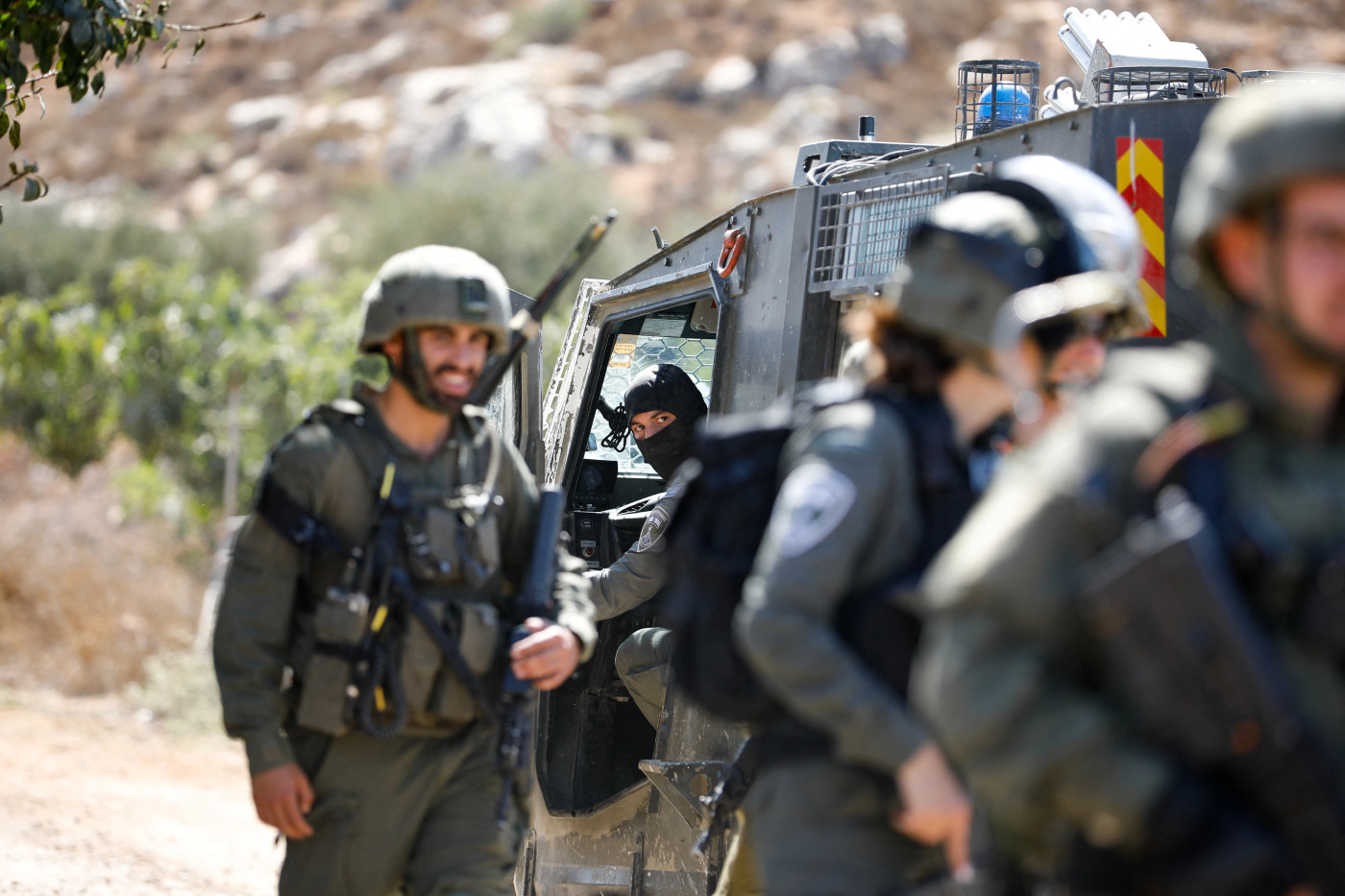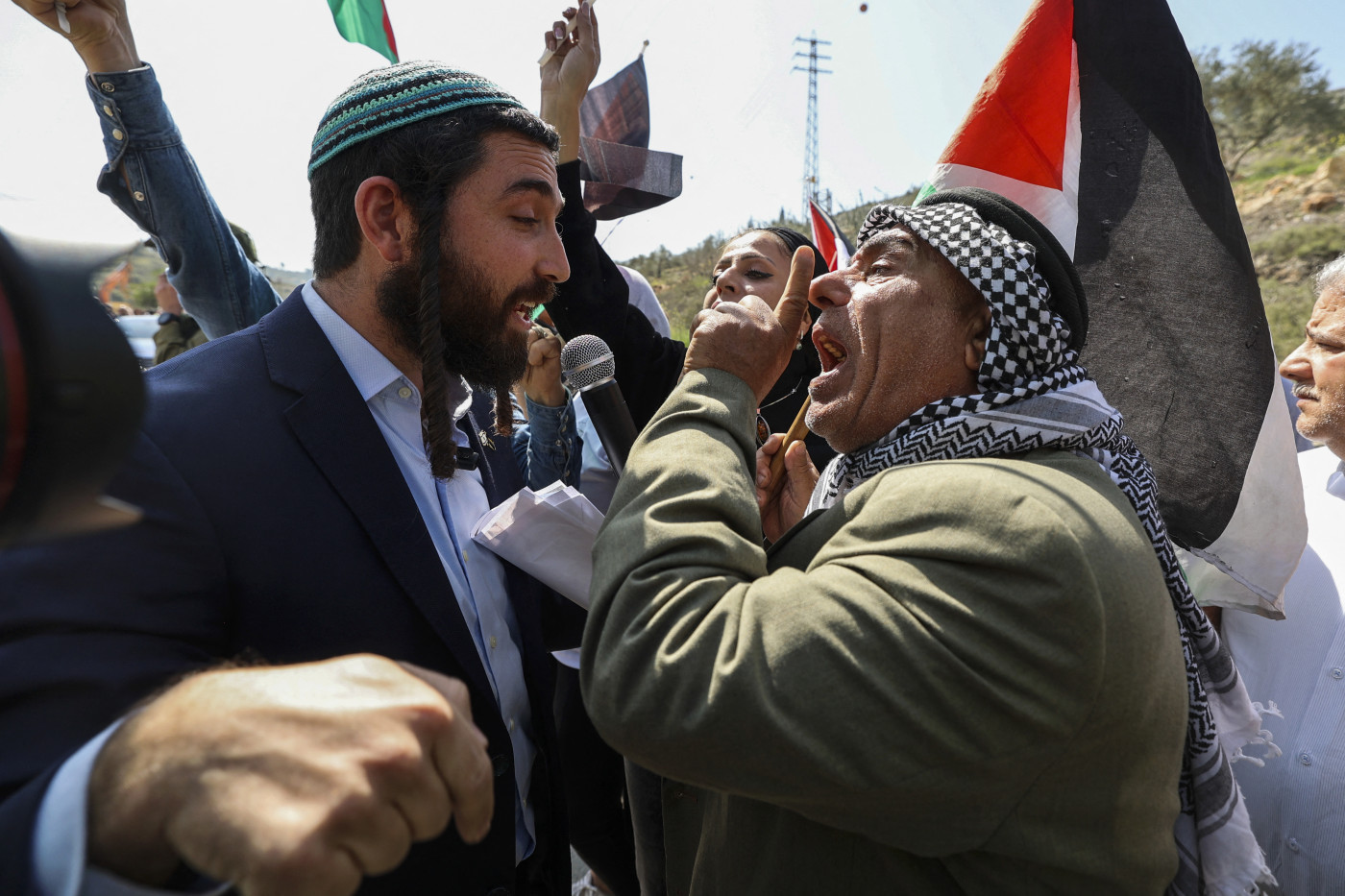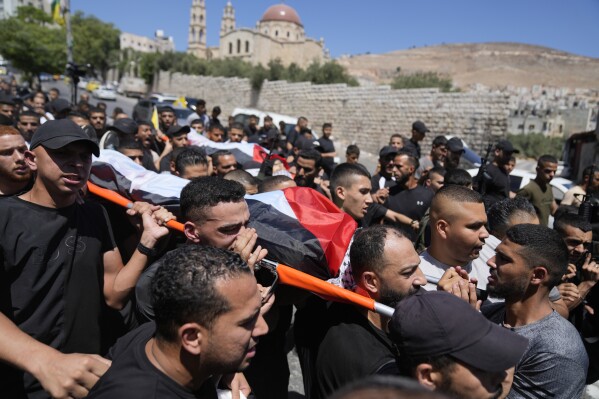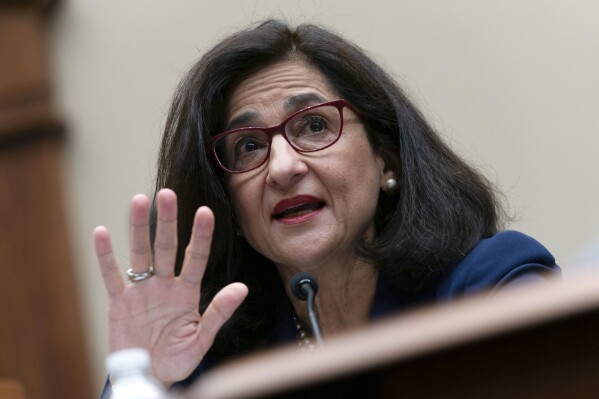Hamas Says Netanyahu Wants an Even Bigger War, Not a Ceasefire
A senior Hamas official has told Newsweek that Israeli Prime Minister Benjamin Netanyahu was deliberately blocking a ceasefire deal that would put an end to the 10-month war in the Gaza Strip and was instead seeking to expand the conflict across the region.
The accusation came after a fresh round of negotiations began Thursday in the Qatari capital of Doha with Hamas noticeably absent from talks. As mediators from Qatar and Egypt deliberated on behalf of the Islamist Palestinian movement alongside delegations from Israel and the United States, few predicted the kind of breakthrough that U.S. officials have hoped may assuage Iran's desire to exact revenge on Israel over the unclaimed killing of Hamas' political chief in Tehran late last month.
With regional tensions at a boiling point and both warring parties trading blame for the lack of progress, Basem Naim, a spokesperson and former health minister of Hamas, questioned the intentions of the Israeli side, particularly those of its longest-serving premier who returned to power in late 2022 by forming a coalition with the far-right.
"We believe that Netanyahu, from the beginning, does not want to reach a cessation of aggression on the Gaza Strip or conclude a ceasefire agreement," Naim told Newsweek. "Rather, he wants the war to continue for reasons of his own, on a personal level, for partisan reasons, and also for ideological reasons."
Naim, who offered some elusive insight into the sticking points of the seemingly paralyzed talks, went on to identify what he felt was a familiar pattern through which Hamas offered "flexible" and "positive" responses to amendments, only to be followed by new Israeli attacks, most recently an Israeli airstrike that targeted the Tabeen school in Gaza City last Saturday, according to Palestinian officials.
"All of this clearly indicates that the Zionist enemy, especially Netanyahu and his government, do not want to reach a ceasefire agreement," Naim said, "but rather are interested in continuing to launch attacks against many countries in the region to serve the agenda in Israel."
Israeli officials have denied altering the framework of the agreement.
Reached for comment, a representative of Netanyahu's office referred Newsweek to a statement denying that a July 27 letter from the Israeli premier had "added new conditions" to the U.S.-backed proposal presented two months earlier. Rather, the statement said that "Hamas is the one that demanded 29 changes to the May 27 proposal, something the Prime Minister refused to do."
The three major points of contention identified by Netanyahu's office involved the passage of Palestinians through the Netzarim Corridor established by the Israel Defense Forces (IDF) dividing north and south Gaza, the number of living hostages released by Hamas and Israel's control over which Palestinian prisoners will be freed in exchange.
According to Naim, however, Hamas had already agreed to the May 27 proposal, which he said closely followed the three-phase road map unveiled by Biden days later and the approved draft resolution of the United Nations Security Council in June. The White House had promoted the plan as being in complete alignment with Israeli demands but has since called on both sides to bridge new gaps that have emerged.
"Of course, we agreed to the proposal on July 2 that came to us from the mediators, which is the essence of the draft Security Council resolution and also the essence of the Biden project, which is based on the Israeli paper," Naim said.
"But then [Netanyahu] went and added new conditions related to his unwillingness to leave the Philadelphi Corridor and the Rafah crossing and imposing security checks on residents returning to their homes in the Netzarim corridor," he added, "in addition, of course, to changing the conditions related to the prisoner exchange, although they were agreed upon and bridged by mediators."
The IDF launched operations against Rafah on May 6, defying U.S. protests as hopes were raised for a possible breakthrough in talks being held that weekend. Israeli officials argued at the time that Hamas had failed to satisfy their conditions for an agreement and that the operation was necessary to weaken the group's grasp over the southern city that borders Egypt along the so-called Philadelphi Corridor.
Thus, began what Naim saw as a series of near-deals that would be followed through an intensification of Israeli military action.
"On May 6, we agreed to what the mediators offered," Naim said, "On May 7, the occupation entered Rafah and occupied the Rafah crossing one day after the. We agreed on July 2 to what the mediators had brought, and we were waiting for the Israeli response to this approval, and the response came to us with the assassination of the movement's leader in Tehran."
"Hours after the issuance of the tripartite statement calling for renewed negotiations to reach a ceasefire," Naim added, "the Zionist enemy committed a new massacre at the Tabeen School in the Daraj neighborhood in Gaza."
The IDF said at the time that there was "a high probability" that a senior official of the Palestinian Islamic Jihad movement's Central Camps Brigade, Ashraf Juda, was present at the school at the time of the targeting. The IDF later released the identifies of 31 purported combatants killed in the attack, though Juda's name was not included.
The Tabeen strike sparked expressions of concern by the U.S. State Department and White House, which called on Israel to take measures to mitigate civilian casualties. The attack also drew sharp condemnation from U.N. officials, who have also urged Israeli forces to avoid conducting operations against protected sites such as schools, shelters and hospitals.
Israeli officials have long denied targeting civilians and have accused Hamas of purposely deploying fighters and military infrastructure in such locations, an accusation also rejected by the Palestinian group.
The current war, which marks the longest and deadliest conflict in Gaza, began last October with a large-scale surprise attack led by Hamas in which Israeli officials estimate around 1,200 people were killed and about 240 taken hostage, around half of whom are believed to still be in captivity in Gaza. The death toll provided by Palestinian health officials in the Hamas-led territory has topped 40,000.
Netanyahu has declared his commitment to continuing the Israeli campaign until all wartime objectives were achieved, including the total defeat of Hamas, the neutralization of any threat posed to Israel within Gaza and the return of all remaining hostages.
Israeli Foreign Ministry special envoy Fleur Hassan-Nahoum argued that these conditions have remained since the beginning of the conflict and the ensuing ceasefire talks despite growing criticisms, some of which have emerged within Israel itself and its top ally, the U.S.
"I think there's a narrative being put out by the Israeli media and also by American media that somehow Netanyahu is the block to the ceasefire," Hassan-Nahoum told Newsweek. "I think it works very well for the Netanyahu detractors in our own country. there's an element, unfortunately, of politicization that's happened with the hostage families, and I don't judge them."
"If it was my kid in there, I'd be doing whatever it takes as they are," she added, and pressurizing the government to do more."
Hassan-Nahoum also assigned blame to Hamas, however, which she asserted had rejected five previous attempts at striking a deal.
"Five ceasefire proposals have been rejected by Hamas. That's just the facts," Hassan-Nahoum said. "And also, when anything is going anywhere, it seems that they add conditions."
"I'm not here to defend Bibi," she added, referring to Netanyahu's nickname, "but the conditions that Israel has, it's had all along. We're not going to allow armed terrorist to go back to the north of Gaza. We have to block the Philadelphi route...and Hamas has to go."
Last week, an IDF official told Newsweek that "we have dismantled most of the military framework in Gaza." Such progress has opened up further rifts within Israel, with Defense Minister Yoav Gallant reportedly telling lawmakers earlier this week that the slogan of "total victory" was "gibberish" and Netanyahu then accusing his defense chief of espousing an "anti-Israel narrative."
Speaking to reporters on Thursday, White House National Security Council Communications Adviser John Kirby declined to weigh in on the internal Israeli spat but assessed "that the Israeli Defense Forces have brought down significant blows on Hamas and their military ability" and have "decimated their leadership ranks at all levels."
He reiterated the U.S. appeal for both Israeli and Hamas officials to agree to a ceasefire deal, to which he acknowledged amendments have been made since the initial proposal. Now, he said "the central framework" had been agreed to by both parties and the U.S. was "doing everything we can" to secure a final deal.
At the same time, Kirby noted, this "doesn't mean we're going to stop talking to the Israelis about what more they need to do to limit civilian communities, to better deconflict with aid organizations and to be more precise and discriminate as they continue to go after the military targets that they're going after."
Newsweek has reached out to the White House for further comment.
As for the five proposals referenced by Hassan-Nahoum, Naim argued that these were offers "that Hamas agreed to, and Israel rejected or imposed new conditions on them." He also suggested that Netanyahu's participation in the negotiations were a tactic to stave off domestic and external pressure.
"In order to avoid pressure from the American administration and pressure from within Israel, whether from the opposition or from the families of the prisoners," Naim said, "Netanyahu is trying to appear or give the impression that he is still involved in the negotiation process."
"But every time he sends a negotiating delegation, they are not authorized to reach an agreement," he added, "or every time the delegation returns to find new conditions that Netanyahu has set on previous agreements that Hamas has agreed to in coordination with the mediators and with the knowledge of the Israeli side."
Meanwhile, battles still rage in Gaza, with both the IDF and Hamas' military wing, the Al-Qassam Brigades, along with other Palestinian factions, claiming daily operations.
Against this backdrop, Iran continues to vow revenge over Haniyeh's killing in Tehran and the group's ally, the Lebanese Hezbollah movement, has also called for retaliation for Israel's slaying of the group's top military official, Fouad Shukr, in Beirut less than day before the Hamas chief's assassination.
The heightened tensions have helped to fuel the latest U.S. push for a Gaza ceasefire in the hope that such a deal would mitigate the response promised from Iran, Hezbollah and their fellow Axis of Resistance allies.
In a statement shared with Newsweek last week, the Iranian Mission to the U.N. said it would back a ceasefire recognized by Hamas but also maintained its right to strike back at Israel over Haniyeh's killing.
"Our priority is to establish a lasting ceasefire in Gaza; any agreement accepted by Hamas will also be recognized by us," the Iranian Mission said at the time. "The Israeli regime has violated our national security and sovereignty through its recent act of terrorism."
"We have the legitimate right to self-defense—a matter totally unrelated to the Gaza ceasefire," the Iranian Mission added. "However, we hope that our response will be timed and conducted in a manner not to the detriment of the potential ceasefire."
Naim argued that, while he saw some "intersection" between the two issues, he expected Iran and Hezbollah to pursue their own objectives. This was especially the case for the killing of Haniyeh in Tehran, which he called "an attack on the sovereignty of the state in the Islamic Republic of Iran and an attack on Iranian national security, and it certainly whets the appetite of the Israeli occupation for more transgressions and aggression."
"Therefore, we believe that there may be attempts by the Americans to cool the Iranian response or the Lebanese response," Naim said, "but we believe at the same time that the Iranian response is coming regardless of whether or not there is an agreement on a ceasefire in Gaza, because there is a special part of the Islamic Republic of Iran and also Hezbollah in Lebanon in their desire to respond to this aggression."
Yet he also argued that Netanyahu, in waging war in Gaza, was pursuing a broader goal of bringing the U.S. into a direct conflict with Iran.
"He is trying to achieve through this opportunity that came to him the ambitious goal that he has been seeking for 20 years, dragging the United States of America to fight with him in a battle of aggression against Iran," Naim said. "For him, this is an opportunity to escalate the situation in the region, not only in Gaza, but in the entire region, so that the United States of America will fight with him in this battle that he knows he cannot fight alone."
Naim also asserted that the upcoming U.S. election may influence Netanyahu's calculus.
The Israeli leader, Naim argued, would be "continuing the escalation of the situation in the region and also continuing the aggression on the Gaza Strip until the next American elections, considering that a new president may come to the White House who will be more supportive of him in this policy or in this aggression against our Palestinian people."
Disclaimer: The copyright of this article belongs to the original author. Reposting this article is solely for the purpose of information dissemination and does not constitute any investment advice. If there is any infringement, please contact us immediately. We will make corrections or deletions as necessary. Thank you.



